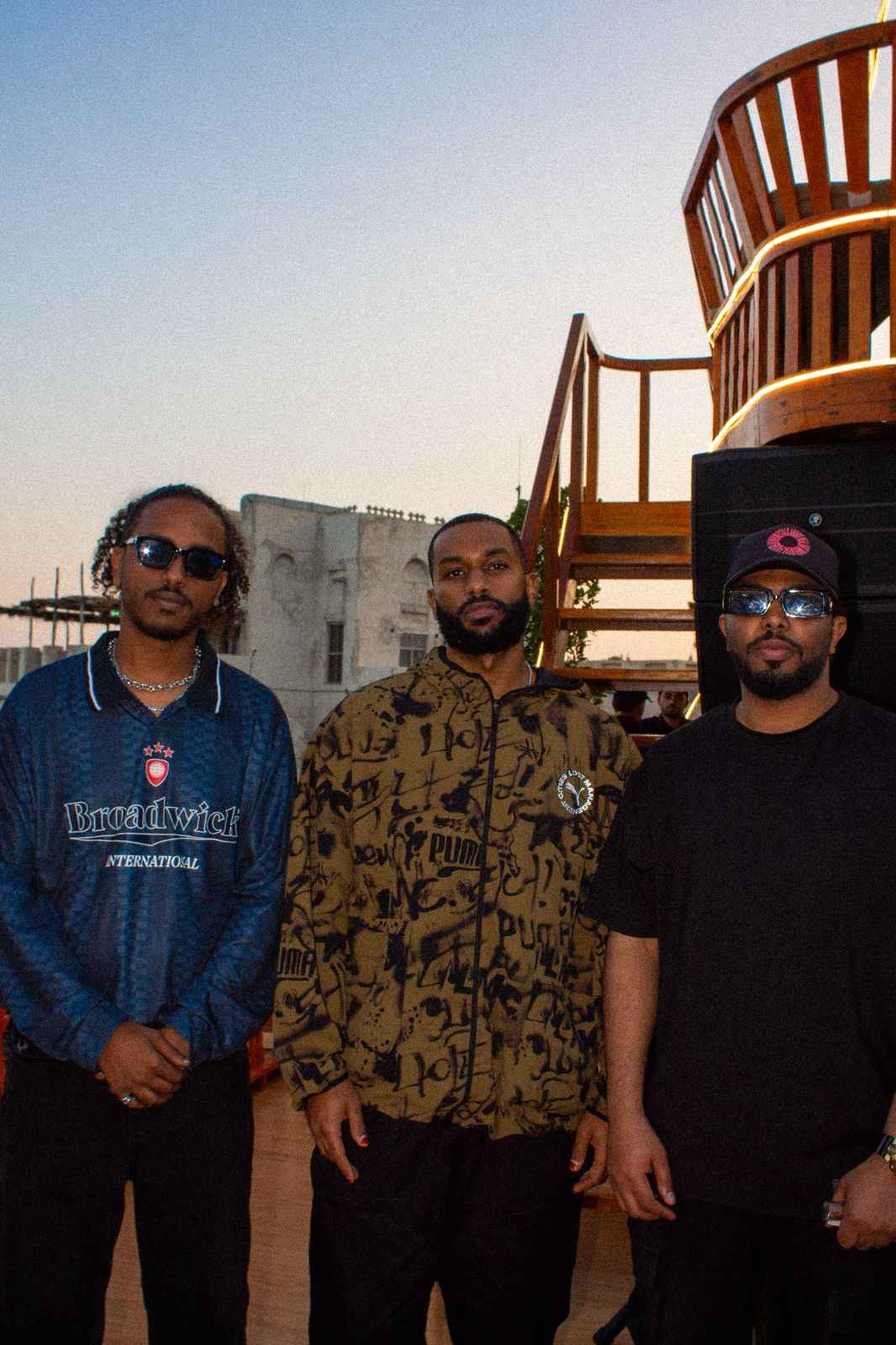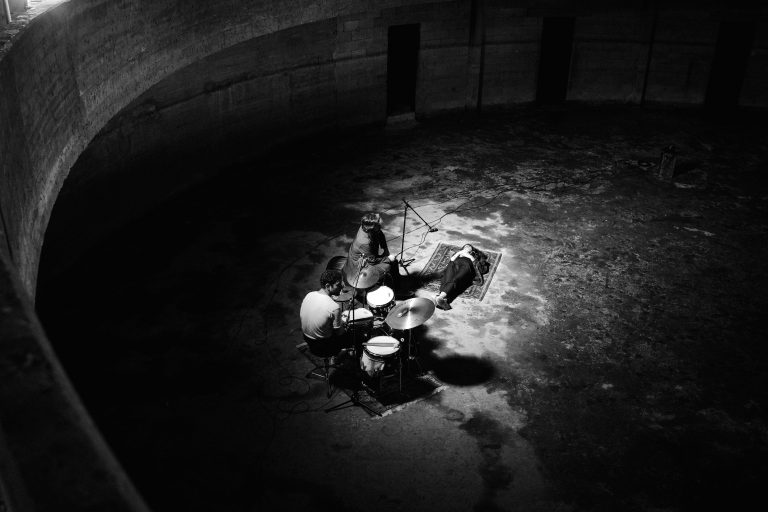Sudan is a breeding ground of Black Excellence. Music is what brings us together, manifesting through a second heartbeat that helps navigate hurt and grief through sound. In 2018, in the first wave of the war in Sudan, many artists rose out of necessity to help make sense of the world, birthing the notorious Sudanese group, The C!rcle.
After a two-year hiatus, The C!rcle is back in motion. “We just came out of hibernation,” Aidyproof says. AKA Keyz laughs: “It’s smirk emoji season.”
The name itself is a philosophy, a tribute to the idea of always coming back to yourself in the infinite stream of life.
“Everything circles back into itself. So whatever you put in, that’s what you’re going to get,” Aidyproof explains.
When Aidyproof, whose real name is Ahmed Hamad, first envisioned The C!rcle, he wasn’t thinking about starting a traditional label. He was thinking about legacy.
“I really feel like [Sudani’s] can rap as good, if not better than Americans. I think we can do any genre,” he recalls. “So I started just thinking, who are the young Sudanese artists that I like, that I feel could cross over to Western ears?”

That seed, planted in 2018, has grown into a collective that is part brotherhood, part cultural archive, and part survival mechanism. The C!rcle’s active members are currently G-SALIH, Eaz Da Bully, AKA Keyz, and Aidyproof, alongside collaborators and affiliates such as Nadine El Roubi and Hoosh.
They operate as a family, a collection of memories, protest, and prayer.
“It’s important and powerful to preserve a sense of community, culture and the traditions that we have as Sudanese people,” says G-SALIH. “It’s on us to preserve that being we’re in a diaspora and all over the world.”
What binds them isn’t paperwork, but trust. “Because this is a brotherhood, you can speak to each other freely; we don’t have to filter ourselves,” Eaz Da Bully says. “We can tell each other how it is.”
From touring in London, Dubai, New York, and Washington DC, their reach is merely just beginning.
Rebuking the rigid dynamics of the traditional music business, The C!rcle resists hierarchies and rigid structures, paving its own path. They serves as a testament to the new direction Sudanese youth and pioneers are heading toward: creating what best serves the people, what serves you.
“It never took on a full industry format,” Aidyproof says. “This was more organic, more genuine.”
AKA Keyz echoes this sentiment: “The differences in our characteristics and stuff like that, as well as similarities… it kind of is what makes us us and what makes us a family.”
The collective shows us that preservation isn’t passive, it’s active. In 2019, their anthem “Sudania” was recorded during a rap camp in Khartoum. The song was bold, explicitly anti-regime. Local businessmen and radio figures warned the group against releasing it.
“They literally said they would burn the station down and shut them down,” Aidyproof remembers.
Calculating the pushback, Aidypoof waited until he got back to the United States to release the song. He said,” I landed. We dropped it. And the rest is history.”
That moment redefined Sudanese music as part of the revolution.
Eaz Da Bully reflects, “That song… was the start of the music being part of the revolution. That one was the most direct.” It was dangerous; it created momentum. “It started as a healthy, friendly competition,” he adds. “Nobody wants to be outdone by the next man.”
Leading the group to focus on outdoing no one but themselves, they embody a collective energy that is embedded in all their work.
When asked which track best embodies The C!rcle, the joy and energy light up within their eyes as they get giddy in their responses.
“Way Back is special because it was created in Sudan,” G-SALIH recalls. He pictures the vibrancy of a studio room packed with Sudanese musicians, from producers to violinists, vocalists, and rappers, in awe of the work being played. It was the moment, the nostalgia, and the environment that made the song special for him.
Eaz Da Bully sees collaboration as the bridge: “I’ve collaborated with artists within the region who rap or sing in Arabic. That connects the two worlds a lot better than if I were to do it in Arabic myself.”
This mindset helps to personify their identities through their sound: Sudanese at its core, global in scope.
The C!rcle embodies what it means to be an artist with morals and faith, and leads with it, authentically. In homage to Sudan, and recognizing the broader impact, their music serves as a vessel of power, focusing on one’s craft and re-tuning your frequency.
Music is only one part of their mission. The collective sees itself as cultural stewards, bridging generations and geographies. “In this industry that grows more Godless every day. We’re not trying to lose sight of that. We’re not trying to lose sight of God,” Aidypoof says.














The War In Sudan Is Not “Forgotten.” It Is Actively Ignored.
There is nothing complicated about speaking up against the violent brutality faced by the Sudanese people.